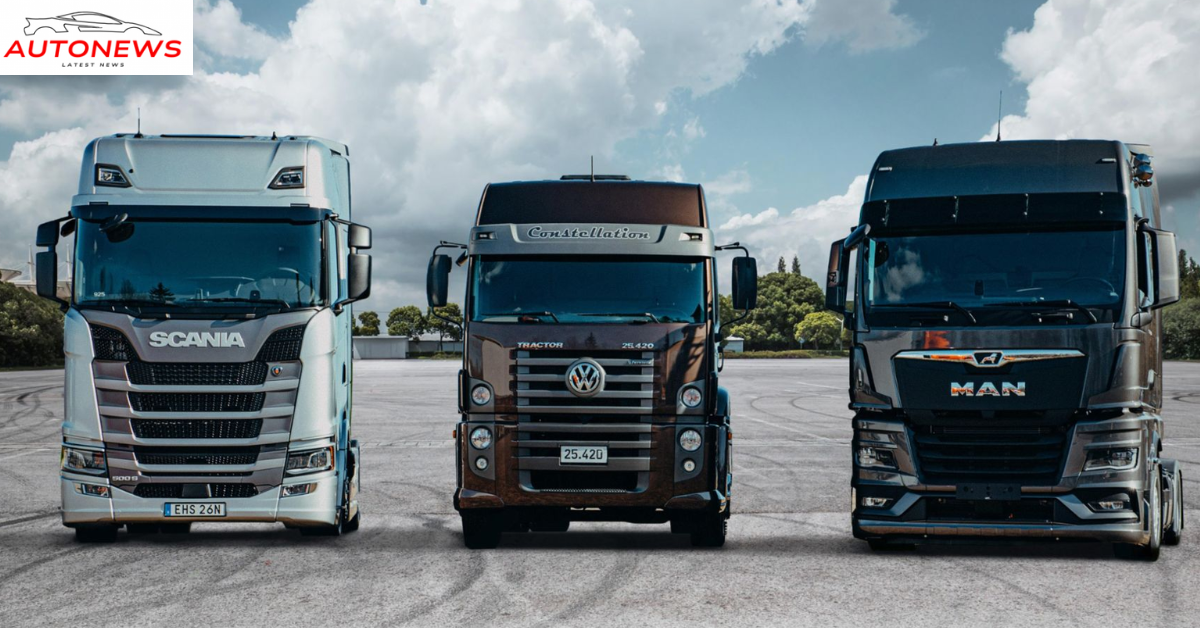In the ever-evolving landscape of commercial transportation, few players have positioned themselves as prominently and strategically as the Traton Group. As a leading global manufacturer of commercial vehicles, Traton combines the legacy, innovation, and engineering power of several iconic brands—MAN, Scania, Navistar, and Volkswagen Truck & Bus (VWCO). This alliance has enabled Traton to create a dynamic synergy in producing cutting-edge trucks that meet the world’s growing logistics and freight demands.
A Brief Look at the Traton Group
Headquartered in Munich, Germany, the Traton Group is a subsidiary of Volkswagen AG. Founded in 2015 as Volkswagen Truck & Bus, it rebranded to “Traton” in 2018 to better reflect its unified, global strategy. Its mission: to transform transportation, focusing on sustainability, digitalization, and efficiency.
The group’s brands operate semi-independently, maintaining their unique engineering traditions and market strengths. MAN and Scania dominate the European market with their strong technological legacy, Navistar brings deep roots in North America, and VWCO caters to South America and emerging markets.
Traton’s strategy goes beyond producing trucks; it’s about reshaping the logistics ecosystem. With increasing investments in electric mobility, autonomous driving, and connected services, the group is paving the way for a smarter, greener future.
Spotlight: Scania R-Series – A Flagship of Innovation
Among Traton’s diverse offerings, the Scania R-Series stands out as a hallmark of premium quality, innovation, and performance. Tailored for long-haul and heavy-duty transport, the R-Series combines advanced engineering with driver-centric features and sustainable technology.
1. Power and Performance
The Scania R-Series is available with a range of high-performance engines, including Euro 6-compliant V8s, renowned for their fuel efficiency and longevity. Scania’s powertrain technology offers exceptional torque at low RPMs, reducing fuel consumption without compromising power.
The 13-liter inline-six engine is one of the most popular in the range, offering a balance of power and fuel efficiency. Fleet operators often praise Scania for delivering trucks that are not only powerful but also economically sound over the long haul.
2. Driver Comfort and Safety
The R-Series cab design reflects a deep understanding of the driver’s needs. The spacious, ergonomically optimized cab offers excellent visibility, intuitive controls, and premium materials. Features like adaptive cruise control, lane-keeping assist, and advanced emergency braking systems make the R-Series not just a workhorse, but also one of the safest trucks on the road.
Scania also emphasizes driver well-being with comfortable sleeping quarters, efficient climate control, and customizable dashboards—critical for long-haul routes where the truck becomes a second home.
3. Sustainability and Future Readiness
As part of Traton’s broader goal to decarbonize freight transport, Scania is investing heavily in alternative powertrains. The R-Series is available in hybrid and fully electric configurations in select markets, making it a viable option for operators looking to reduce their carbon footprint.
Moreover, Scania’s modular system allows for easy upgrades and customization, ensuring the truck can evolve alongside emerging technologies and regulatory changes.
4. Connectivity and Digital Services
Scania’s R-Series is equipped with a comprehensive suite of telematics solutions. Fleet managers benefit from real-time data on fuel usage, driver behavior, maintenance schedules, and route optimization. This level of connectivity not only improves operational efficiency but also contributes to cost savings and better decision-making.
Through Traton’s digital services platform, operators can integrate data across fleets—even those with mixed-brand trucks—creating a unified view of logistics performance.
The Road Ahead
Traton’s ambitions go well beyond producing some of the world’s best trucks. The group is investing in autonomous vehicle development through partnerships with technology firms and exploring hydrogen fuel cells alongside battery-electric powertrains. These investments reflect a clear vision: a transportation ecosystem that’s cleaner, safer, and smarter.
By 2030, Traton aims for a significant portion of its trucks to be zero-emission vehicles. With the combined R&D capabilities of its brands and access to Volkswagen Group’s technology base, Traton is uniquely positioned to lead the industry into its next chapter.
Final Thoughts
Whether you are a logistics operator, a fleet manager, or simply a fan of world-class engineering, the Traton Group’s truck models—like the Scania R-Series—represent the best of innovation, performance, and sustainability. In a world increasingly defined by rapid change and environmental responsibility, Traton is not just keeping pace—it’s setting the course.

